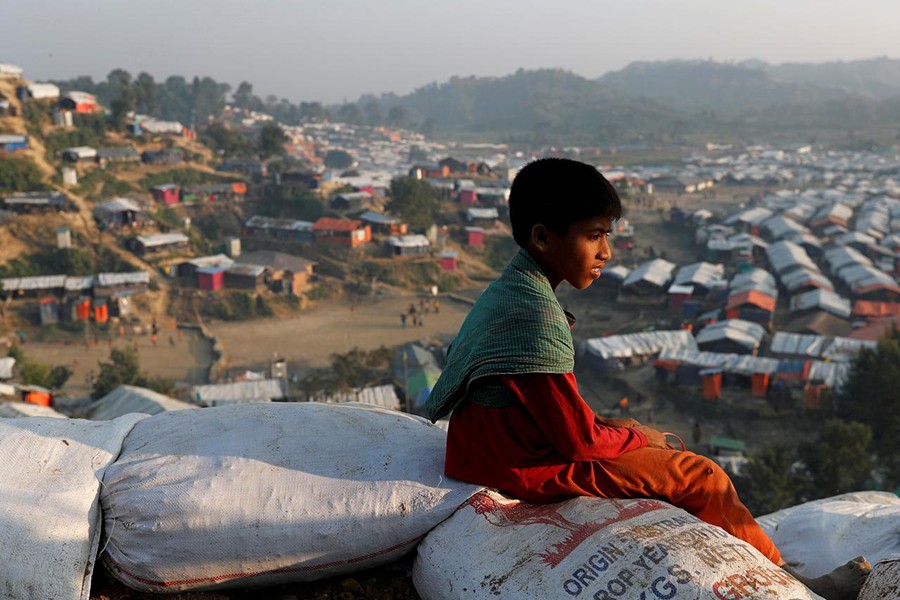The fall in funding for humanitarian response to the Rohingya refugees has stoked concern among policymakers and relevant partners.
Until May this year, only 18 per cent fund of the required US$ 920.5 million for the 2019 Joint Response Plan was received.
Last year's plan received more than a quarter of the needed money in the first five months.
"The slow pace of funding is worrisome. We have urged the development partners to come forward to addressing the issue," foreign minister Dr AK M Abdul Momen told the FE.
He said the situation is becoming complicated with the advent of monsoon and rise in social crime in and around the camps.
"That is why we are taking all out effort to send them back to their homeland in Myanmar with safety and dignity," he said.
The joint plan has a total of 166 projects and the highest fund is allocated to food security ($255m), WASH ($136m), shelter ($128m), site management ($98.7m), and health ($88.7m).
According to the Inter Service Coordination Group (ISCG), a platform of the humanitarian agencies, continued donor support through the early disbursement of funds is essential for agencies to better plan interventions, allocate resources and provide consistent assistance to the beneficiaries.
So far, donors have collectively contributed over $1.13 billion since the beginning of the crisis on 25 August 2017, it said.
More than 700,000 ethnic Rohingya from Myanmar fled to Bangladesh following a campaign of targeted violence against the community, which began in August 2017.
Within weeks, the exodus was recognised as the world's fastest-growing refugee crisis.
The new arrivals joined some 200,000 Rohingya who had fled earlier waves of violence and persecution in Myanmar. Most are living in fragile shelters in overcrowded settlements where they are vulnerable to diseases.
With the passage of time, the tension between the host community and refugees has been growing as locals started to bear the brunt of the massive influx of the refugees.
Initially, they were cordial but gradually they feel that they are losing many things due to the existence of such a huge alien population.
As the funding is becoming slower the projects aimed at the development of the host community cannot be run smoothly to placate the local people around the so-called "mega-camp."
"We want relief. We have resource constraints and it is not possible for us to keep them here for a long," the foreign minister said.
"We don't need mere lip services and praises. The international community should provide real support so that the Rohingya crisis can be resolved immediately," he added.


